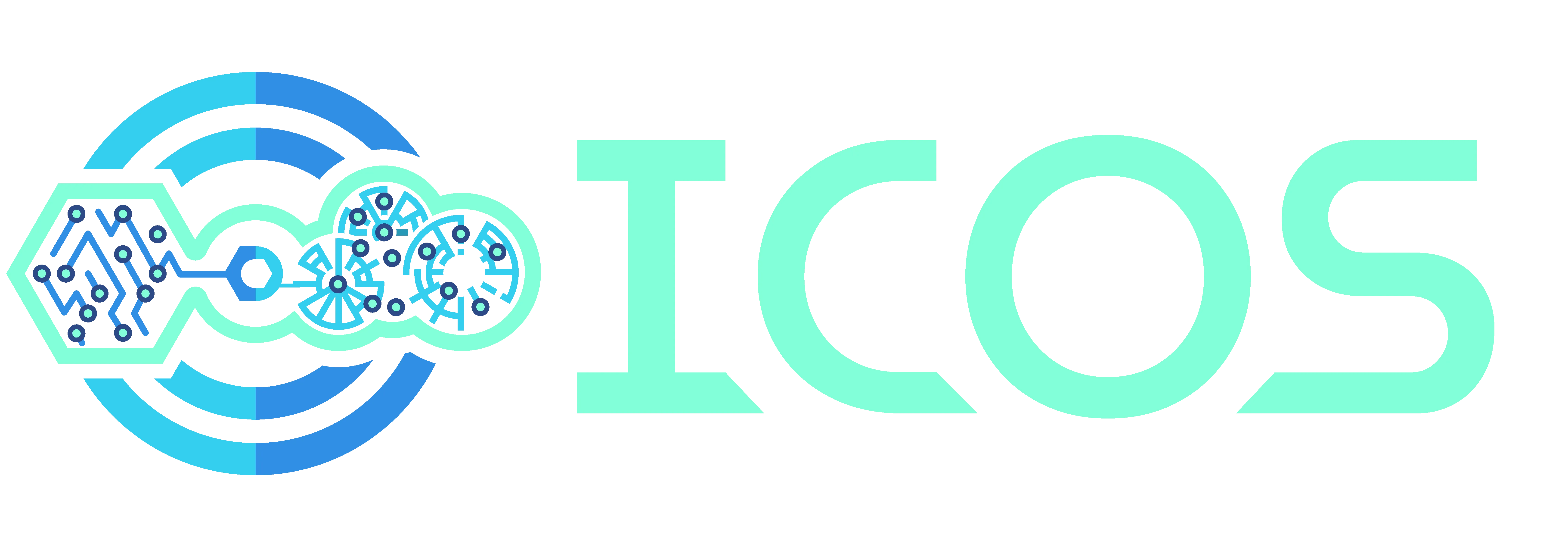Objectives
The main objective of project ICOS is to design, develop and validate a meta operating system for a continuum, by addressing the challenges of:
- devices volatility and heterogeneity, continuum infrastructure virtualization and diverse network connectivity;
- optimized and scalable service execution and performance, as well as resources consumptions, including power consumption;
- guaranteed trust, security and privacy;
- reduction of integration costs and effective mitigation of cloud provider lock-in effects, in a data-driven system built upon the principles of openness, adaptability, data sharing and a future edge market scenario for services and data.
Objective 1. Design of an intelligent meta OS for the continuum
What
We propose to design and develop ICOS as an open, multi-platform, plug-and-play and technology-agnostic meta operating system that provides a stable and performant service, resource and data management, encompassing a green orchestration strategy to suit the specific needs and requirements of the envisioned smart IoT scenario (including technological and business development demands).
Result
Through this comprehensive approach, ICOS aims to become a foundational platform for the next generation of IoT systems, delivering enhanced performance, flexibility, and sustainability. By providing a robust and versatile meta operating system, ICOS will empower businesses and developers to create advanced IoT solutions that meet the evolving needs of the market.
Objective 2. Exploiting novel intelligent data and resource utilization methods
What
We propose to design and develop novel, autonomous, intelligent and adaptable workload partitioning, offloading, processing and storage strategies in the continuum, while enhancing the abilities of app developers to taking advantage of all continuum resources.
Result
Through the development of these novel, intelligent, and adaptable methods, we aim to transform the landscape of data and resource utilization. Our approach will not only enhance the performance and efficiency of existing systems but also pave the way for new applications and services that can fully leverage the capabilities of the computing continuum. This will ultimately lead to more robust, scalable, and responsive solutions across various domains, from smart entertainment to railroad monitoring and beyond.
Objective 3. Enforce trustworthy yet open operation
What
We propose methods to enforce trustworthiness (including security, resilience, reliability, privacy) in the continuum, such as trustworthy “bus” of resources that include data and software artifacts.
Result
By implementing these comprehensive methods, we aim to create a trustworthy yet open operational environment within the computing continuum. Our approach will ensure that data and resources are managed securely and reliably, providing a foundation for robust and resilient operations. This will enable users and stakeholders to confidently leverage the system's capabilities, driving innovation and growth while maintaining the highest standards of trustworthiness.
Objective 4. Demonstrate the project outcomes in key relevant scenarios
What
We plan to demonstrate and validate the ICOS operating systems in the pilots brought in by the project (including defined use cases and open calls). This includes various ICOS releases, as well as application-scale ICOS demonstrations.
Result
By demonstrating and validating the ICOS operating system in these key relevant scenarios, we aim to showcase its potential to revolutionize IoT management and resource optimization. Our comprehensive approach will not only highlight the system’s capabilities but also ensure that it is robust, reliable, and ready for widespread adoption across various industries and applications.
Objective 5. Building an open innovation environment and fostering the creation of new applications in the continuum as well as the science and engineering community
What
This objective is twofold. First, it aims at maximizing project results’ visibility and broader impact of ICOS, including both dissemination and exploitation in the business community. Second, our particular aim is to facilitate the engagement of the developer’s community into the continuum deployment.
Result
By building an open innovation environment and actively fostering the creation of new applications within the continuum, we aim to achieve a transformative impact on the science and engineering community as well as the broader business ecosystem. Our dual approach of maximizing visibility and engaging developers will drive widespread adoption, spur innovation, and ensure the long-term success and sustainability of the ICOS platform.
This project has received funding from the European Union’s HORIZON research and innovation programme under grant agreement No 101070177.


